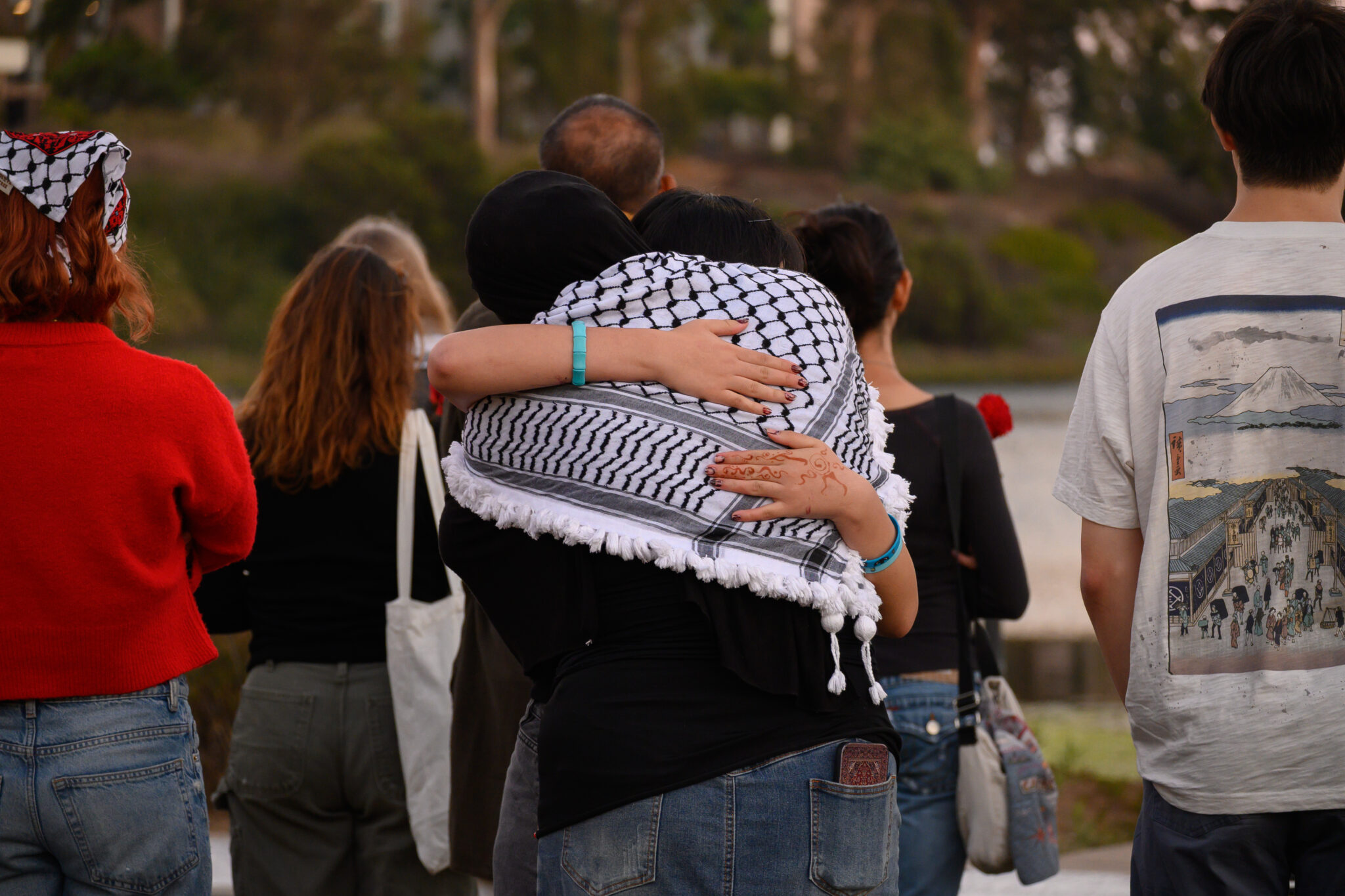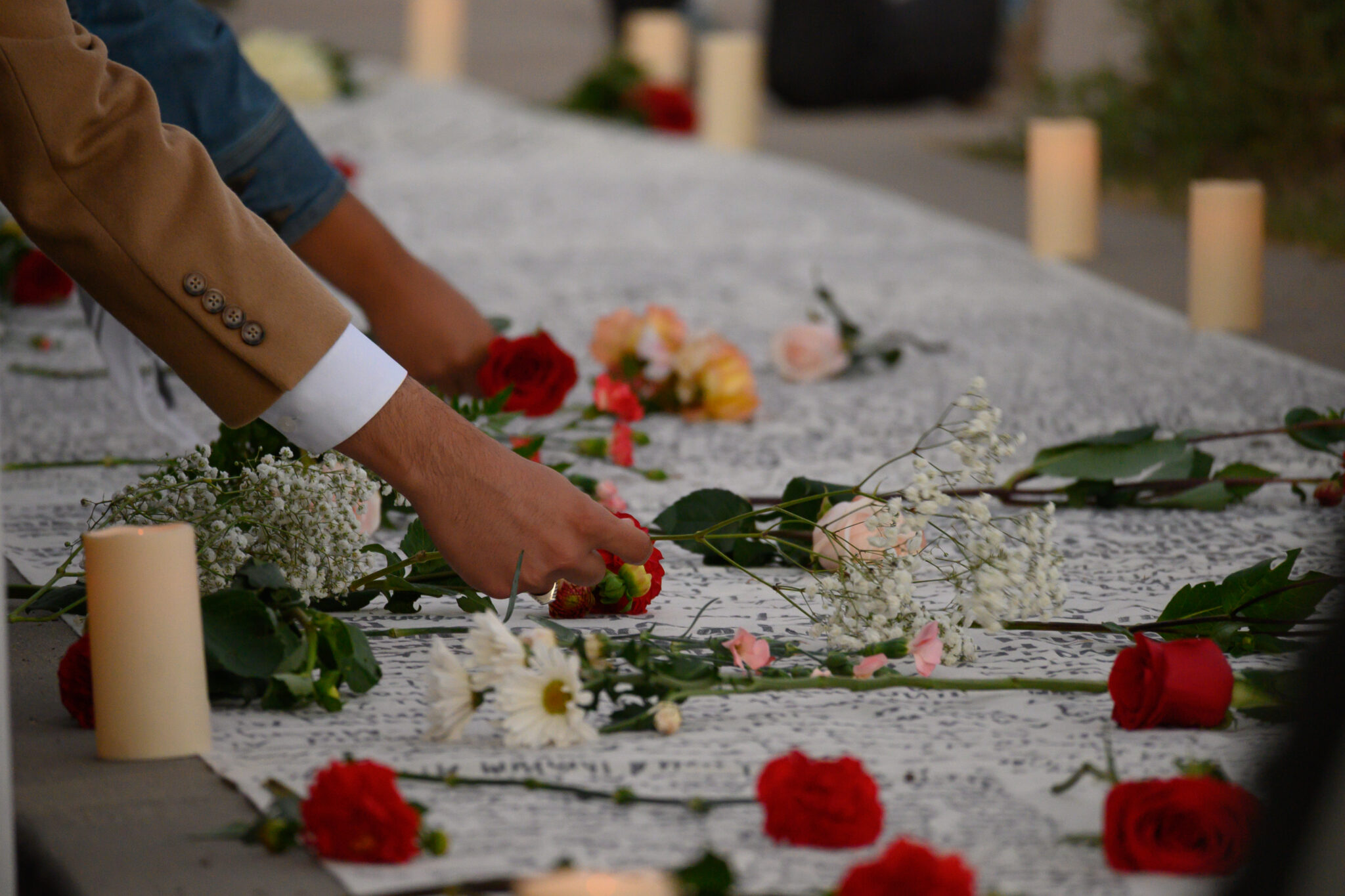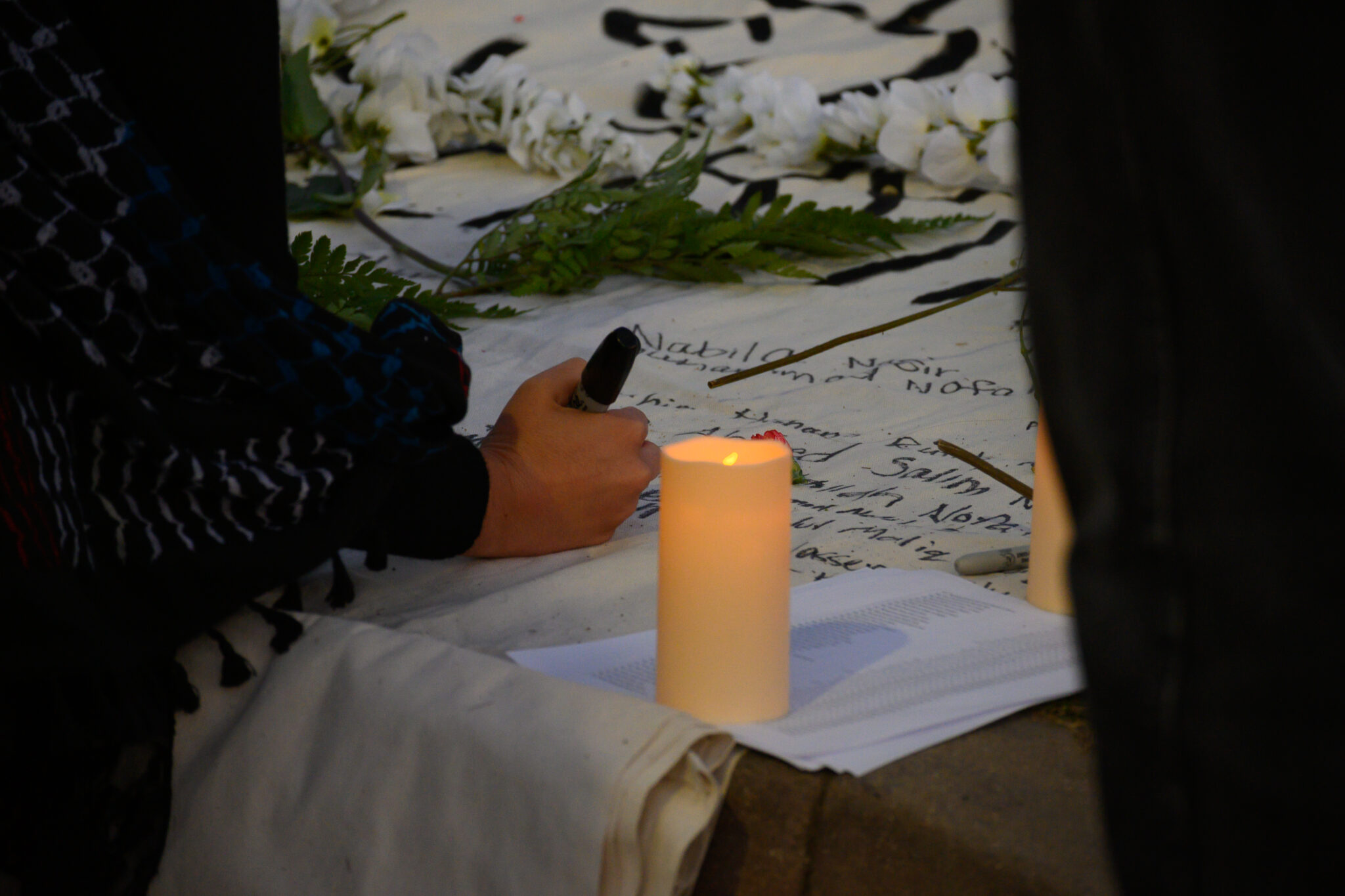Speakers who did not disclose their identities are referred to as event organizers in this article.
UC Santa Barbara Students for Justice in Palestine held a vigil on Oct. 7 to honor and remember the lives of Palestinians killed in Gaza. The vigil marks the second anniversary of militant group Hamas’ attack on Israel. In response, Israel intensified its military siege of Palestine, which is now recognized as a genocide by a United Nations commission.

SJP held a vigil in honor of two years of genocide on the two year anniversary of the Oct. 7 attack. Sherine John / Daily Nexus
During the attack on Oct. 7, 2023, Hamas killed 1,200 Israelis and took 250 hostages to Gaza. Since then, the Israeli Defence Forces (IDF) have killed an estimated 67,173 Palestinians — which includes at least 20,179 children.
Before the event began, organizers set up a long banner on the walkway by the Lagoon Lawn that included the names and ages of Palestinian victims in Gaza. They placed flameless candles around the banner, and a poster next to it that read “every person killed was someone’s everything,” with flower bouquets atop it.
The vigil began at around 6:10 p.m., and started out with around 60 attendees, with the crowd eventually growing to 80 attendees. Several attendees wore keffiyehs — a traditional Middle Eastern headdress which has come to be viewed as a symbol of Palestinian culture — around their shoulders and heads.
An event organizer began by thanking attendees for showing up and delivering a ground report on recent events that happened before this weekend. These events included the killing of at least 94 Palestinians in Gaza between Oct.3 and Oct. 5, Israeli drone attacks on humanitarian aid boats heading to Gaza from Tunisia and the arrests of around 500 pro-Palestinian protestors in London, among others.

Participants were invited to place flowers on a banner that lists the names of the Palestinian lives lost under the Israeli occupation. Sherine John / Daily Nexus
The organizer then spoke to the significance of the vigil’s date, which they said “marks two years since the violent settler colonial state of Israel, with assistance from Western governments and other colonial imperialist forces, began its height in genocide in Gaza.”
The organizer condemned Israel’s military actions in Gaza, as well as “forces around the world that have allowed and enabled these crimes against humanity to continue.” They also emphasized the importance of recognizing the extensive hardships that Palestinians have faced since the mid-20th century.
“We must recognize that the genocide of Palestinians did not begin on October 7th,” they said. “It has been waged for nearly a century with the presence of the settler colonial state first emerging in Palestinian land in the 1948 Nakba, and that land continues to be seized today through the establishment of illegal settlements.”
The organizer concluded the introduction of the vigil by expressing their hopes for the future of Palestine.
“Palestine will be free one day, and it will be freed in our lifetime by Palestinians and those who continue to resist,” they said.
Following this, three organizers read the poems “If I Must Die” by Refaat Alareer, “Hole in the World” by Anthony Alessandrini and “We Deserve a Better Death” by Mosab Abu Toha.
The organizers then invited five members from Academics for Justice in Palestine and Jewish Voice for Peace to the front, who read off various quotes from an Oct. 7 New York Times (NYT) article. The article included recent quotes from civilians in Gaza whom the NYT had interviewed over the past two years.
“[The NYT] tried to reach out to the people living in Gaza who they have interviewed over the last two years to ask them how their lives are now. Did they find their missing relatives? Are their homes still standing? Were they able to bury their dead? Were they forced to flee again? And were they even still alive? And this is what they said,” one speaker said.
The group concluded by reading a poem from a collection titled “[…]” by Fady Joudah.
A student then spoke about dealing with feelings of grief, how their faith has supported them through difficult times and shared verses from the Quran that they felt encouraged by.
“I’ve lost one by one many things that I love very much. This is what I never imagined would happen,” they said.

SJP members and participants wrote the names of deceased Palestinians on a banner. Sherine John / Daily Nexus
Following this, the event organizers encouraged attendees to grab flowers from the provided bouquets and scatter them along the banner of names and encouraged attendees to write down names of individuals who were “lost to this genocide” on the banners.
A version of this article appeared on p. 1 of the Oct. 9, 2025 print edition of the Daily Nexus.





















Maybe they should free the hostages? And nothing says “we hate Jews” like holding this on the anniversary of the terrorist attacks.
We our proud democrats hear and we must stand up to the idoit FoxNews-watching republitards who support Isreal and other evil countries. The innacent people of Gaza where bruttaly attacked by Trump’s friends in Israel for no reason at all other than the capitalist desires of Israel and Trump. It takes a village and we must stand up agianst captailaism, Isreal and the morrons at 1600 Pittsburg Ave
Please ignore “Brett Holmes”. He is clearly a right wing troll whose purpose is to make us look like far left nut jobs.